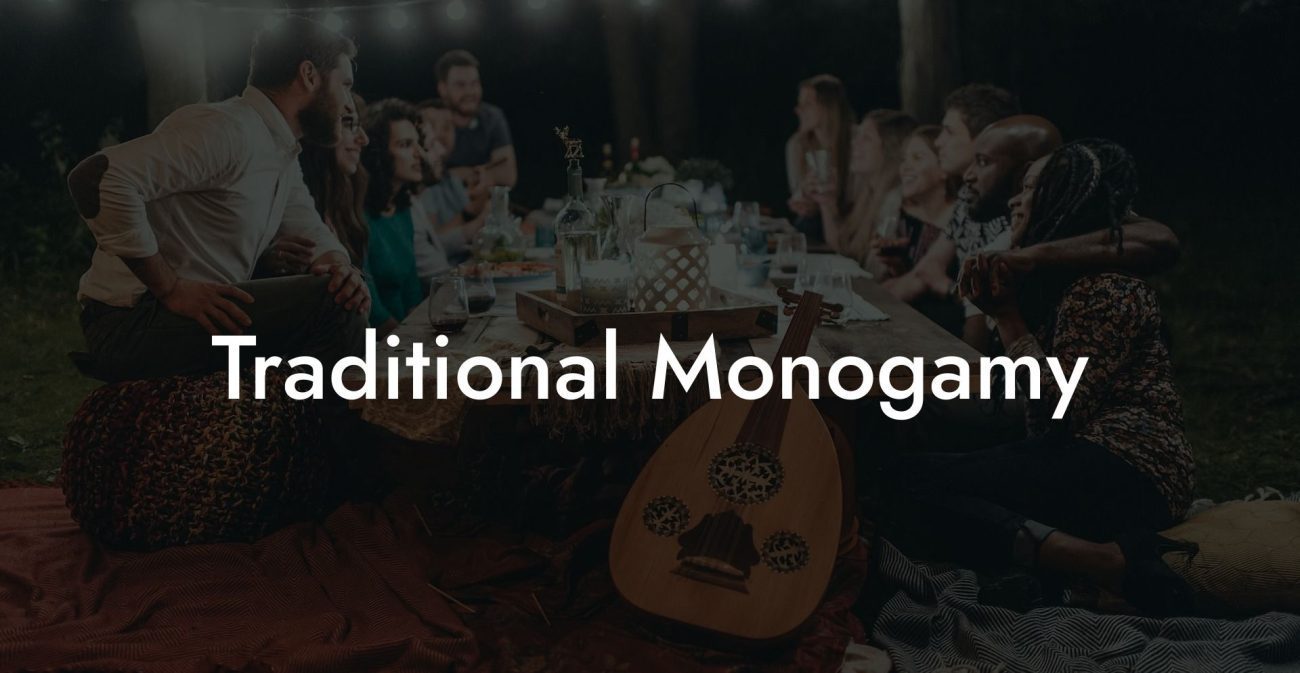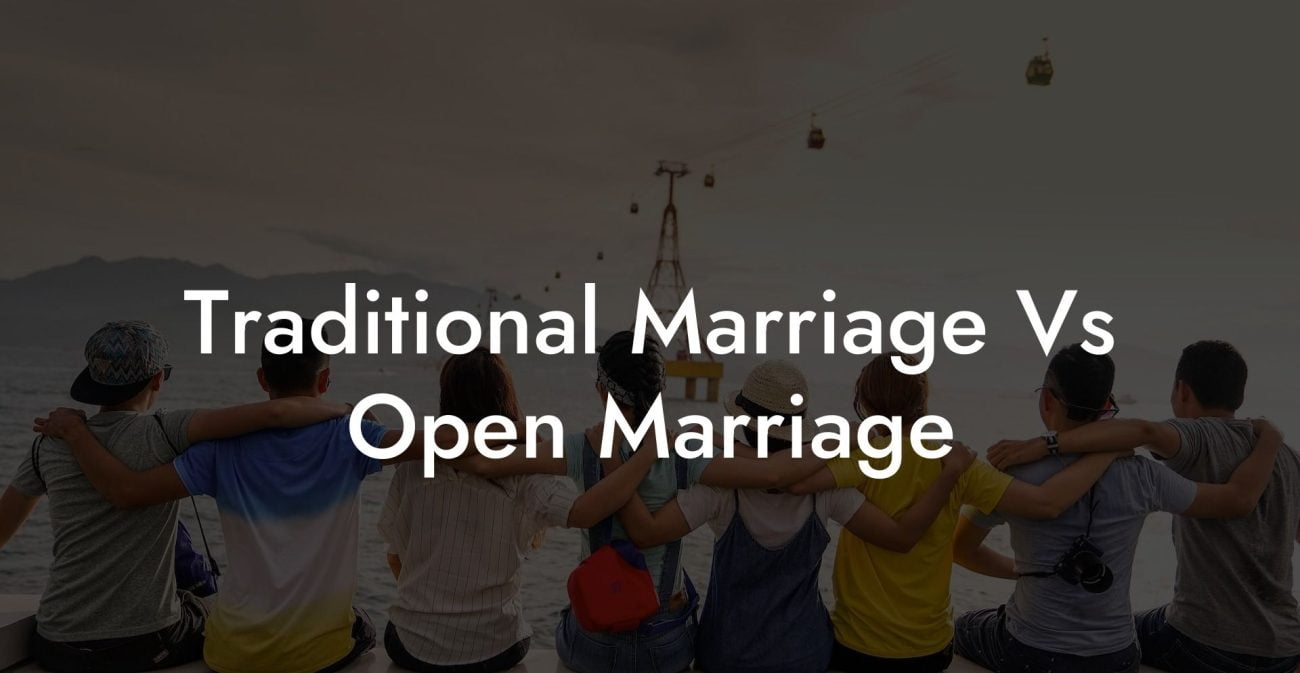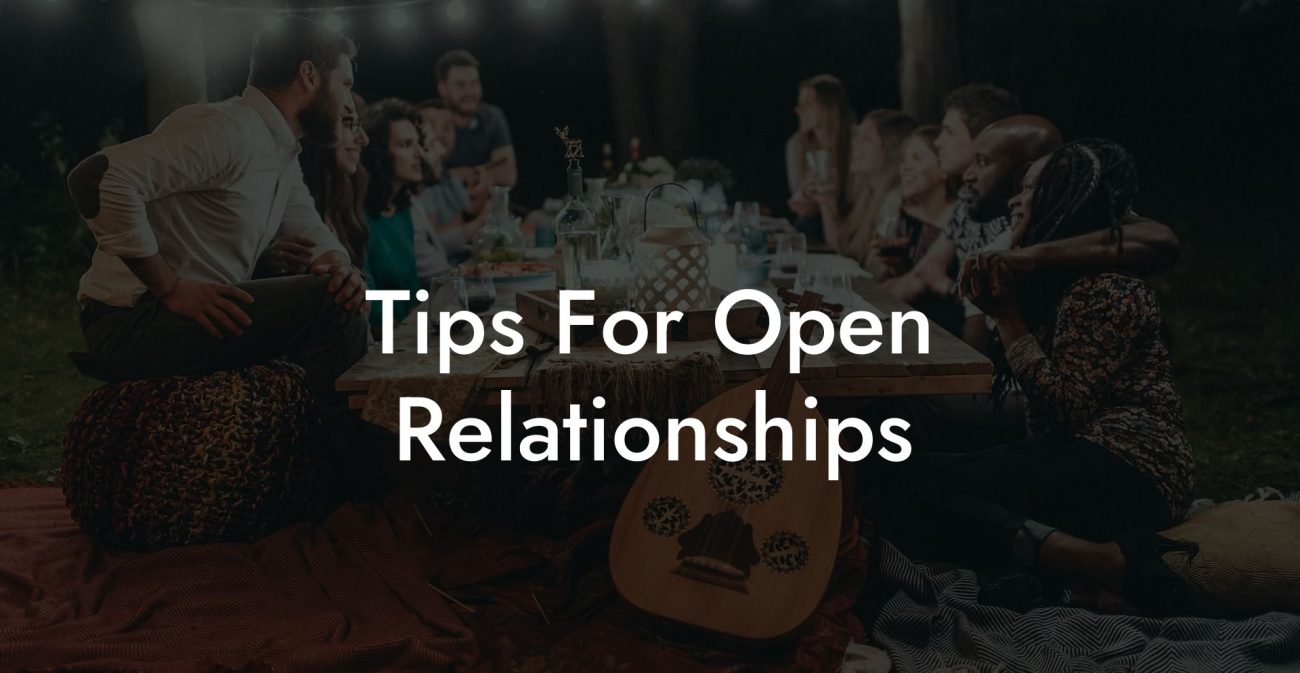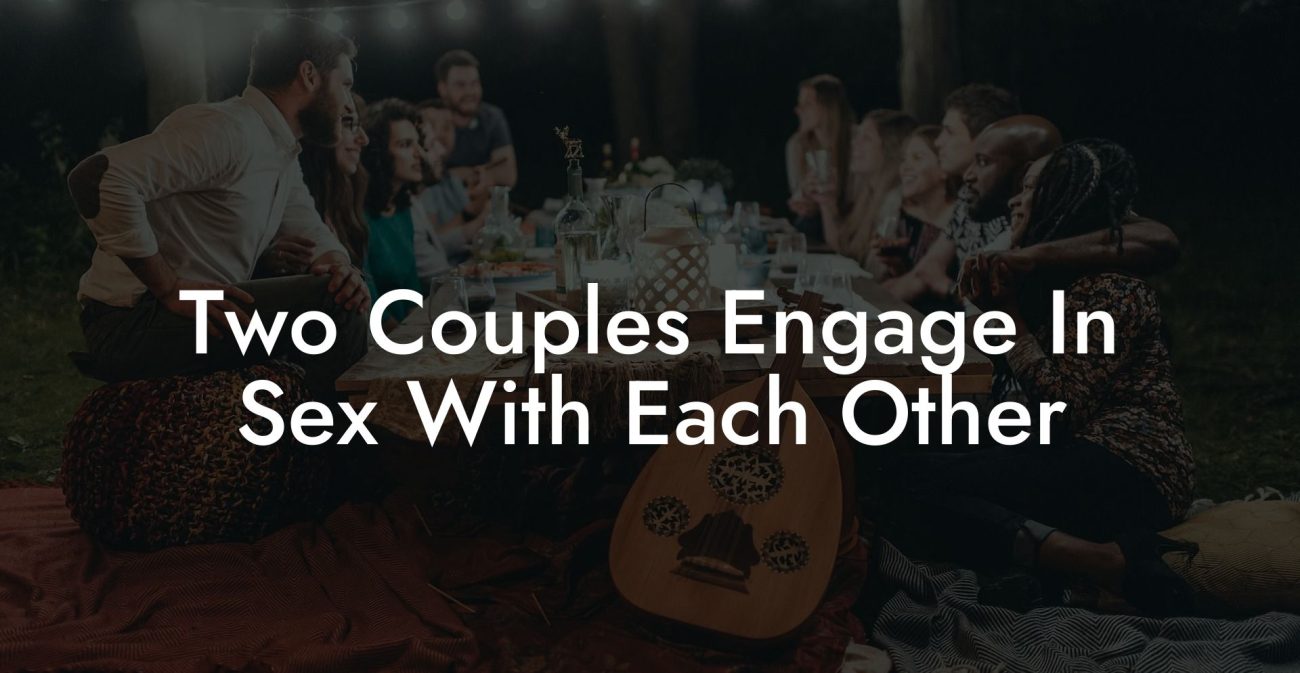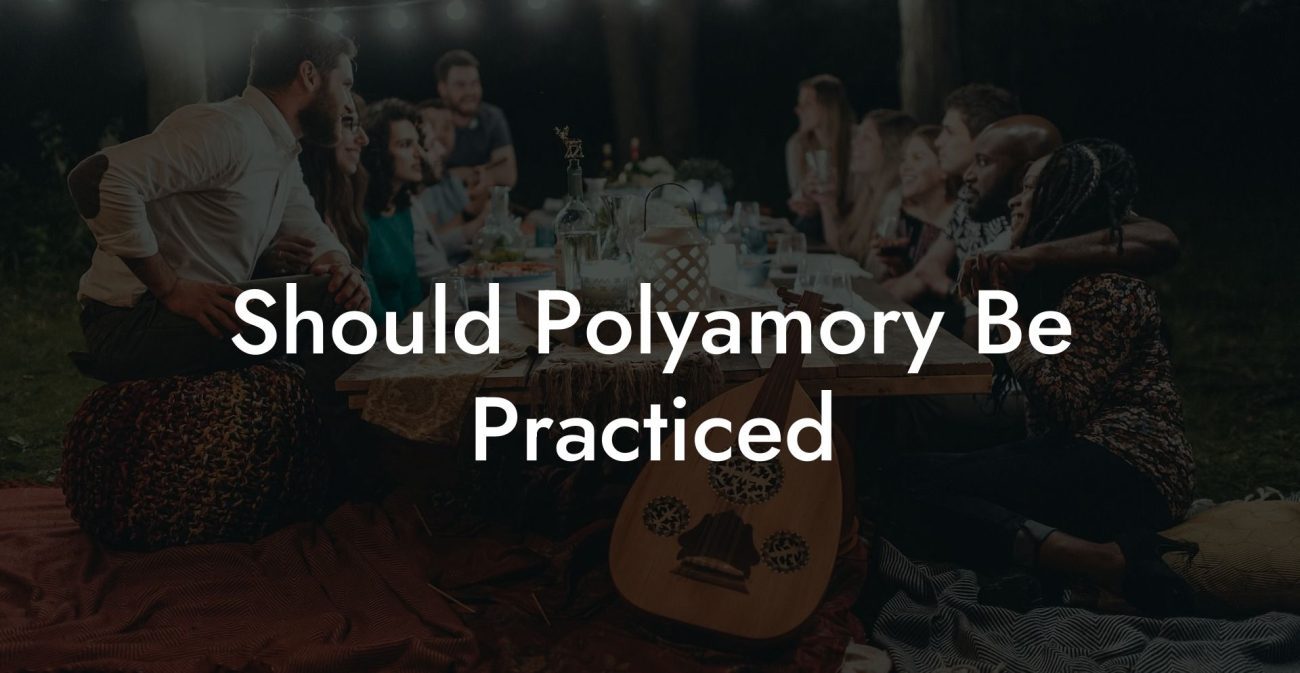Monogamous vs Polygamous: Key Differences

Welcome to our guide to the key differences between monogamous and polygamous relationships. In today’s diverse world of intimate partnerships, many people are rethinking traditional models of love and commitment. Two of the most discussed relationship structures are monogamy and polygamy. Although both involve deep commitment, they differ fundamentally in how relationships are structured, maintained, and understood. This guide will help you explore the definitions, historical backgrounds, legal frameworks, cultural influences, emotional dynamics, and practical implications of these two relationship models. Whether you are a student, researcher, or someone considering your own relationship options, this resource is designed to provide clear, in-depth insights into the differences between monogamous and polygamous relationships.
Have you ever wondered if monogamy is just a stupid little experiment? Open relationships, polyamory, relationship anarchy...find out which relationship dynamic suits you best with our one minute relationship test. See if you are just conforming to "societal norms". Reveal your truth >>
Quick Links to Useful Sections
- Defining Monogamous Relationships
- What Is a Monogamous Relationship?
- Historical and Cultural Roots of Monogamy
- Defining Polygamous Relationships
- What Is Polygamy?
- Cultural and Historical Roots of Polygamy
- Key Differences Between Monogamous and Polygamous Relationships
- Structure and Relationship Dynamics
- Legal Recognition and Rights
- Emotional and Psychological Dynamics
- Social and Cultural Implications
- Ethical, Psychological, and Practical Considerations
- Ethical Considerations
- Psychological and Emotional Intelligence
- Practical Implications and Lifestyle Considerations
- Real-Life Examples and Case Studies
- Monogamous Relationship Success Stories
- Polygamous Family Experiences
- FAQ: Your Monogamous vs Polygamous: Key Differences Questions Answered
Throughout this guide, you will discover how each model shapes individual experiences of intimacy and connection, the benefits and challenges inherent in each, and the ways in which societal norms and legal systems have influenced their evolution. By the end of this article, you will have a thorough understanding of what it means to be in a monogamous relationship versus a polygamous family structure, enabling you to engage in informed discussions and make decisions that align with your personal values and goals.
Defining Monogamous Relationships
What Is a Monogamous Relationship?
A monogamous relationship is one in which two individuals commit exclusively to each other. This model emphasizes an exclusive, one-on-one bond where both partners share their emotional, romantic, and sexual lives solely with each other. monogamy is often associated with the idea of lifelong commitment, and in many cultures, it is reinforced through legal marriage and social norms.
Key features of monogamous relationships include:
- Exclusivity: Partners agree to be sexually and emotionally exclusive.
- Long-Term Commitment: The relationship is typically intended to be enduring, often formalized by legal marriage.
- Social and Cultural Norms: Monogamy is widely accepted and promoted by legal, cultural, and religious institutions.
- Focused Intimacy: Emotional and physical intimacy is concentrated between two individuals, often leading to a deep, personal bond.
Historical and Cultural Roots of Monogamy
Monogamy has long been the dominant relationship model in many Western societies. Its origins are intertwined with religious doctrines, particularly Christianity, which promoted monogamous unions as the ideal for marriage and family life. Legal frameworks evolved around this model, reinforcing its status as the norm. In addition, cultural narratives—such as the ideal of the nuclear family—have further solidified monogamy as the standard in many parts of the world.
Although monogamy is widely practiced today, some individuals have found that an exclusive, two-person relationship may not meet all their emotional or sexual needs, prompting the exploration of alternative models.
Defining Polygamous Relationships
What Is Polygamy?
Polygamy is the practice of having more than one spouse at the same time. It is generally categorized into two primary forms:
- Polygyny: One man married to multiple women.
- Polyandry: One woman married to multiple men (a much rarer form).
In many societies where polygamy is practiced, plural marriages are often culturally or religiously sanctioned. Polygamous relationships may be structured hierarchically, with one primary partnership supplemented by secondary or tertiary marriages, or they may form part of a broader, more integrated family unit.
Cultural and Historical Roots of Polygamy
Throughout history, polygamy has been practiced in various parts of the world for a range of reasons. In many ancient and indigenous societies, plural marriages were used to strengthen family alliances, manage economic resources, and increase social status. For example, in many regions of Africa, the Middle East, and parts of Asia, polygyny was a common practice that was woven into the cultural and religious fabric of society.
Religious texts and cultural traditions often provide the basis for these practices. Over time, however, many modern legal systems, particularly in the Western world, have moved toward monogamy, leading to a legal environment in which polygamous marriages are either heavily restricted or outright illegal.
Key Differences Between Monogamous and Polygamous Relationships
Structure and Relationship Dynamics
One of the most significant differences between monogamous and polygamous relationships lies in their structure:
- Monogamy: Involves a singular, exclusive partnership between two individuals. This model focuses on deep, bilateral emotional and sexual intimacy, where roles and expectations tend to be straightforward and mutually defined.
- Polygamy: Involves multiple marital relationships simultaneously. The structure can be hierarchical—often featuring a primary marriage along with secondary or tertiary relationships—or less rigid, depending on cultural or religious contexts. Polygamous families may share resources and responsibilities among a larger group, which can create a complex network of support but also necessitates advanced communication and negotiation skills.
Legal Recognition and Rights
The legal frameworks governing these relationships differ significantly:
- Monogamous Relationships: Are legally recognized in nearly all countries, providing couples with defined rights and benefits related to marriage, such as inheritance, custody, and spousal benefits.
- Polygamous Relationships: In most Western legal systems, polygamous marriages are not recognized, which can lead to complications regarding legal rights, property distribution, and custody. In regions where polygamy is legally sanctioned, it is typically governed by customary or religious law rather than state law.
Emotional and Psychological Dynamics
The emotional dynamics within each relationship model also differ:
- Monogamy: Typically provides a focused, intimate emotional connection between two people. The exclusivity can foster deep trust and commitment, but it may also limit the range of emotional support available to an individual.
- Polygamy: Offers the possibility of a diverse emotional network. Multiple spouses can provide various forms of support, companionship, and care. However, this diversity also requires the ability to manage complex emotions, such as jealousy, and to navigate multiple interpersonal dynamics simultaneously.
Social and Cultural Implications
Cultural norms and societal expectations heavily influence perceptions of these relationship models:
- Monogamy: Is widely accepted and promoted as the societal norm, reinforced by cultural, legal, and religious institutions. This acceptance can lead to strong social support networks for monogamous couples.
- Polygamy: Often faces significant social stigma and legal restrictions in many parts of the world, particularly in Western societies. While it is embraced in certain cultures and religious communities, individuals in polygamous relationships may encounter misunderstanding or prejudice from broader society.
Ethical, Psychological, and Practical Considerations
Ethical Considerations
Ethical issues in monogamous relationships generally revolve around trust, fidelity, and mutual respect. In contrast, ethical polygamy emphasizes informed consent and balanced power dynamics among all partners. Ethical polygamy is often scrutinized for historical instances of exploitation and gender inequality, but contemporary practitioners advocate for systems built on transparency, equality, and respect.
Psychological and Emotional Intelligence
Both models require strong communication skills and emotional intelligence. In monogamous relationships, individuals often develop a deep, bilateral bond. In polygamous families, the need to manage multiple relationships demands higher levels of self-awareness, empathy, and the ability to navigate complex emotional landscapes.
Practical Implications and Lifestyle Considerations
Practically speaking, monogamous relationships tend to be simpler to manage, as there are only two individuals involved. In contrast, polygamous relationships require coordination among several partners, which can involve shared finances, childcare, and household responsibilities. While this can provide economic and social benefits, it also introduces challenges in terms of time management and conflict resolution.
Real-Life Examples and Case Studies
Monogamous Relationship Success Stories
Many couples in monogamous relationships report high levels of satisfaction due to their focused emotional bond, clear roles, and legal protections. For example, couples who invest in regular communication and maintain a deep, exclusive connection often enjoy long-term stability and mutual trust. Monogamy can foster a secure environment where both partners feel valued and supported.
Polygamous Family Experiences
In contrast, polygamous families, particularly those that practice ethical polygamy, often emphasize the benefits of diverse emotional and practical support. For instance, in some cultural contexts, a polygamous family might operate as an extended network where each spouse contributes to the household’s well-being. While such arrangements can provide significant benefits, they also require advanced communication skills and a willingness to navigate potential conflicts, such as managing jealousy and ensuring fairness.
FAQ: Your Monogamous vs Polygamous: Key Differences Questions Answered
1. What is a monogamous relationship?
A monogamous relationship is an exclusive, one-on-one partnership where two individuals commit to each other emotionally, romantically, and often sexually, with legal and cultural support.
2. What is a polygamous relationship?
A polygamous relationship involves having more than one spouse simultaneously. This typically includes forms such as polygyny (one man with multiple wives) or polyandry (one woman with multiple husbands), often within a culturally or religiously sanctioned framework.
3. How do the structures of monogamous and polygamous relationships differ?
Monogamous relationships are built around a single, exclusive bond between two individuals, while polygamous relationships involve multiple marital relationships that may be structured hierarchically or as part of a broader family unit.
4. What are the legal differences between monogamy and polygamy?
Monogamous marriages are legally recognized in most countries, with established rights and benefits. Polygamous marriages, however, are generally not recognized in Western legal systems and are subject to various legal restrictions, though they may be accepted under customary or religious law in some regions.
5. How do emotional dynamics differ between monogamous and polygamous relationships?
Monogamy typically fosters a deep, exclusive emotional bond between two people, while polygamy offers a diverse network of emotional support. However, managing multiple relationships can require higher levels of emotional intelligence and may introduce challenges such as jealousy and complexity in interpersonal dynamics.
6. What are some benefits of each relationship model?
Monogamy offers simplicity, clear roles, legal protections, and a focused emotional bond. Polygamy can provide a broader support network, shared economic benefits, and cultural or religious fulfillment, though it may also involve complex legal and emotional challenges.
7. Where can I find more resources on these topics?
Additional resources include books such as "The Ethical Slut" by Dossie Easton & Janet Hardy and "More Than Two" by Franklin Veaux & Eve Rickert, podcasts like "Multiamory" and "Polyamory Weekly," and online communities such as r/polyamory.
Resources and Community Support: Your Next Steps
- "The Ethical Slut" by Dossie Easton & Janet Hardy – A foundational text exploring alternative relationship models and providing insights into both monogamous and polygamous relationships.
- "More Than Two" by Franklin Veaux & Eve Rickert – An in-depth guide offering practical advice on managing complex relationship dynamics, including comparisons between monogamy and polygamy.
- Podcasts: Listen to "Multiamory" and "Polyamory Weekly" for engaging discussions and real-life stories about diverse relationship models.
- Online Communities: Join forums such as r/polyamory and specialized Facebook groups to share experiences and gain support.
- Workshops and Webinars: Attend events focused on relationship psychology and ethical non-monogamy to expand your knowledge and connect with like-minded individuals.
By exploring these resources and applying the strategies outlined in this guide, you can develop a clear, informed understanding of the key differences between monogamous and polygamous relationships. Embrace continuous learning, open communication, and self-reflection as you navigate the diverse landscape of love and commitment.
Lost & confused by all of the terms, types and seemingly made up 3 letter acronyms?? We've got you. Check out our Ethnical Non-Monogamy Dictionary >>
Useful Interruption: Not sure which relationship vibe fits you best? Take our Relationship Test, it’ll give you the real insight into your natural relationship style. Then, dive into our binge-worthy guides (from the tried-and-true to the “wait, that’s a thing?”) and find the perfect relationship type for your life:
- Monogamy
- Open Relationships
- Ethical Non-Monogamy
- Solo Polyamory
- Non-Hierarchical Polyamory
- Hierarchical Polyamory
- Relationship Anarchy
- Swinging
Now back to the main article but yeah take the test...



